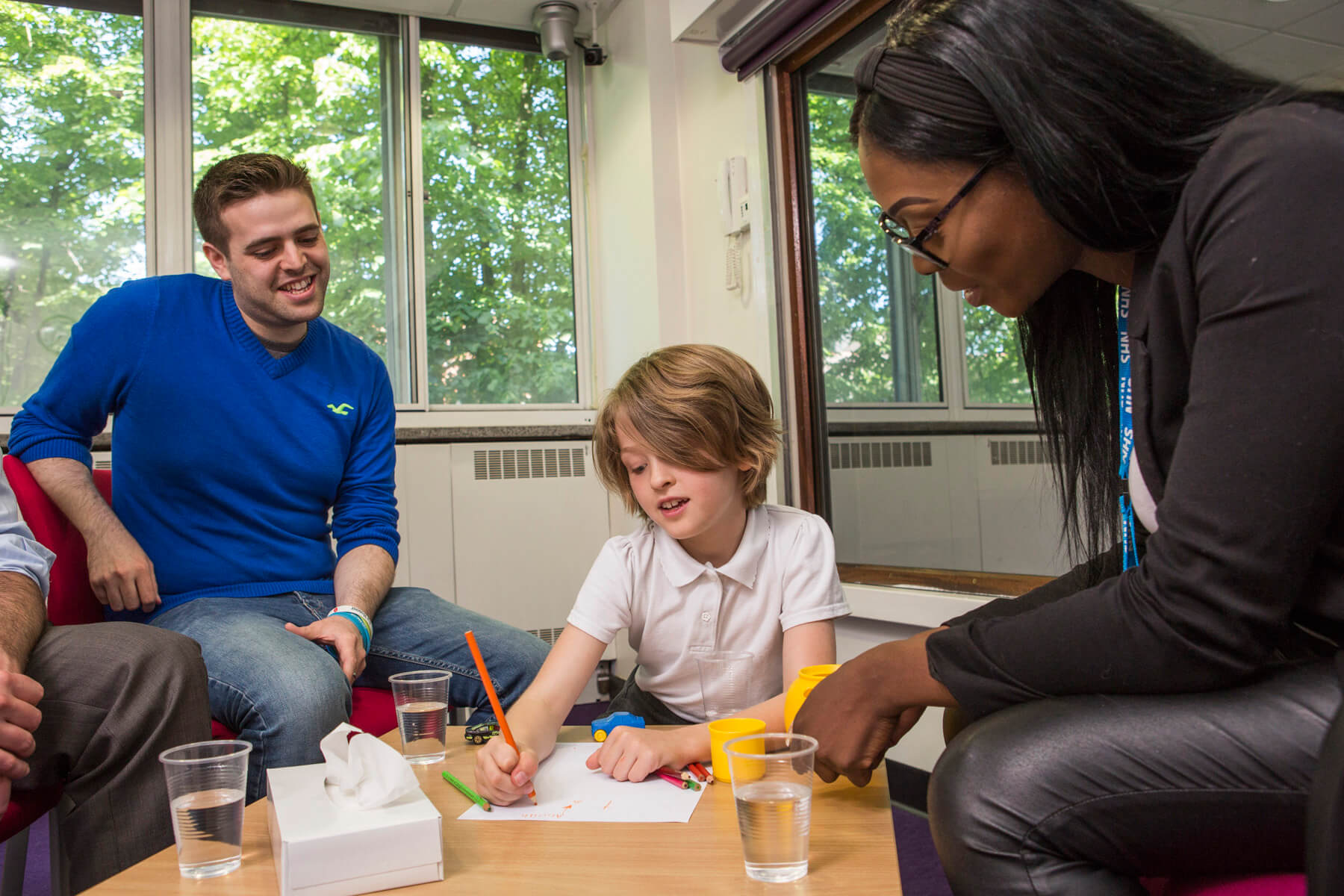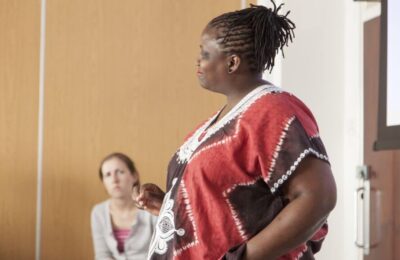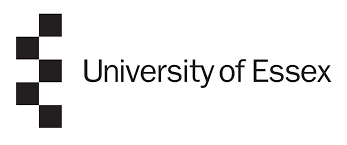
Child, Adolescent and Family Mental Wellbeing: Multidisciplinary Practice (ED24, online)
Discover our award-winning training in child, adolescent and family mental healthcare and practice
This award-winning online course explores the fundamental principles of child, adolescent and family mental healthcare and practice, informed by systemic, psychodynamic and child development theories.
Drawing on a range of modalities and approaches, participants are supported in developing a theoretical framework and toolkit of therapeutic skills that can be immediately applied to their practice.
Validated by the University of Essex and accredited by the Association for Family and Systemic Psychotherapy (AFSP), this one-year training is delivered live online.
About this course
On this course you will learn through theoretical seminars and lectures, infant observation and/or family observation, work practice discussions, experiential groups, personal tutorials and a four-day Group Relations Conference. All teaching takes place in multidisciplinary groups.
Group Relations Conference (GRC)
All students must attend a Group Relations Conference as part of the course, preferably in person. Students may either join the multidisciplinary Spring Group Relations Conference at the Tavistock Centre in London or choose another Group Relations Conference to attend elsewhere. A list of recognised conferences will be provided.
Please note that students are responsible for any travel and accommodation costs associated with the conference. We appreciate that attendance in London for an in-person four-day conference may not be possible for everyone. Please speak to the course lead during your interview, or during the course, if attendance will be difficult for you and alternatives can be discussed. If you choose to attend another Group Relations Conference, we can refund your course fees up to the value of the Tavistock and Portman’s internal Group Relations Conference fee, charged to courses where this is a mandatory requirement.
Theoretical seminars
Theoretical seminars will develop your understanding of psychodynamic, systemic and developmental concepts and how they can be applied in working effectively with children, young people and families where emotional and mental health difficulties exist.
You will study child and family development theories and research, and explore the factors that affect mental health and wellbeing in children, young people and families and common presenting issues. Issues relating to equalities, diversity and inclusion are addressed directly through specific theoretical lectures as well as being embedded in the lecture and seminar series more broadly.
Observation
You will undertake an observational module, choosing between an infant/young child or family observation. These seminars will draw upon psychodynamic and systemic theories and develop your observational skills and capabilities.
You will be encouraged to think carefully about aspects of your own and the observed family’s identity and the relationship between these as part of the observation process. If you choose and successfully complete the family observation module you will achieve the AFSP foundation level award.
Please note that it is your responsibility to arrange this observation, and to cover the costs of any travel associated with this, but you will be given guidance and support with this task during induction and throughout the first term of the course.
Work discussion
These small, multidisciplinary professional practice groups will draw on your practical work experience and aim to develop your capabilities in thinking and in practice. These components aim to facilitate the integration of relevant theoretical ideas and research to develop advanced therapeutic practice skills in working with children, young people and families.
Experiential group
The experiential group will take place every week and offers an opportunity for students to gain an understanding of the processes at work in groups and their own role in these processes. You will be encouraged to explore your experience of working in the group with others who can be different from yourself in terms of race, gender, sexuality and socio-economic background and you will learn from others’ perspectives and examine your own relationship to these.
Personal tutor
A personal tutor will be assigned to support your professional and personal development throughout the course.
Modules
Module 1: Therapeutic Practice, Concepts and Contexts: Applications for practice in working with children, young people, and families with emotional and mental health difficulties
- Year one
- FHEQ level 7
- 20 credits
- Core module
- Module lead: Jason Maldonado-Page
Module aims
The aims of the module are to:
- develop a detailed and authoritative understanding of, and applied use of, theoretical concepts relevant to different therapeutic approaches and interventions in working effectively with children, young people, and families, where mental health difficulties exist
- explore the worker client relationship and contextual issues from both psychodynamic and systemic perspectives exploring both the commonalities and divergences of both theoretical strands
- make theoretical and practical connections with the use of self, self-reflexivity and relationship-based practice and explore in detail the application of these ideas in daily professional practice
- develop a theoretical language for analysing and understanding the complexities of communication and relationships in their work with children, young people within family relationships and associated belief systems.
- consider the range of conscious, unconscious, and systemic factors that impact upon and shape interventions with children, parents, and families
Module assessment
You are required to submit a 3,500 word reflective case study essay drawing equally on psychodynamic, systemic and developmental theory and research learned in modules one and four.
Module 2: Infant and Young Child Observation
- Year one
- FHEQ level 7
- 20 credits
- Optional module
- Module lead: Many Sarankin
Module aims
- develop the capacity to acquire discipline in your observation and develop observational skills
- support you in observing, reflecting upon, and analysing your own feelings and behaviour within the observational context
- help you to gain further understanding of child development and the emerging relationships and interactions of family or carers
- promote a deeper awareness of how children communicate in order to effect changes in their practice, in yourself, and in others
- think about the child’s emotional development in the context of their social and cultural experience
- explore relevant theoretical ideas in relation to the issues generated by the observations
Module assessment
You are required to submit a portfolio consisting of a 250-word contextualisation of the infant/young child being observed and the setting in which the observation is taking place, two infant/young child observation reports, each of 1,000 words maximum, and a reflective commentary of 2,250 words.
Module 3: Family Observation and Systemic Theory
- Year one
- FHEQ level 7
- 20 credits
- Optional module
- Module lead: Shona Grant
Module aims
The aims of the module are to:
- develop a (sound) basic knowledge and understanding of the development of systemic theory and systemic concepts, ability to both critique these and consider their application in practice
- develop an awareness and reflexive understanding of one’s own beliefs, values, and families of origin
- develop an ethical position as an observer and researcher drawing on and being familiar with the AFT Code of Ethics
- explore differences of ‘race’, culture, gender, class, physical ability, and sexual orientation and to relate this understanding both to the observation of media portrayals and role plays of families and to the observation of a real family
- demonstrate a knowledge and application of anti-racist and anti-discriminatory practice and begin to be able to demonstrate the ability to use sensitivity and self and relational reflexivity in engagement and working across differences
Module assessment
You are required to submit a 2,500-word theoretically-informed essay, including an anonymised family genogram.
To qualify for AFT accreditation, you are also required to submit a reflective portfolio of work, comprising: six self-reflexive learning diary excerpts, an accompanying narrative essay (500 words), theory presentation handout and peer feedback.
Module 4: Introduction to Developmental Science Research and the Application of Multimodal Theory in Practice
- Year one
- FHEQ level 7
- 20 credits
- Core module
- Module lead: Shona Grant
Module aims
The aims of the module are to:
- place developmental research in its historical, cultural and biological context, and consider the links between ‘ordinary’ development and mental health issues in babies, children adolescents and adults
- explore central issues in the field of developmental science, such as the nature-nurture controversy, the expanding area of neurobiological research, epigenetics, attachment, and cultural influences
- develop an understanding of the most common diagnostic categories and presenting issues in child, adolescent, and adult mental health, using cultural and developmental understandings
- encourage a questioning, critical and evaluative approach to reading, which can be extended into your clinical and professional work
Module assessment
You are required to submit a 1,000 word non-assessed formative essay on a theoretical idea or piece of research you have learned about and explored within modules one and four.
Module 5: Experiential Group
- Year one
- FHEQ level 7
- 0 credits
- Compulsory module
- Module lead: Jason Maldonado-Page
Module aims
The aims of the module are to:
- offer the opportunity to share and discuss the way in which the course impacts you
- provide a space to think about working with issues concerning diversity, difference, equality, ethnic, cultural differences, social class, and power, both within and outside the group
- explore and reflect on some of the dynamics that occur in and between members of groups and within organisations
Module assessment
This module is not assessed but you are expected to demonstrate the personal and professional development gained from the group experience in all other aspects and assessments of the course. Attendance is compulsory.
Module 6: Group Relations Conference
- Year one
- FHEQ level 7
- 0 credits
- Compulsory module
- Module lead: Jason Maldonado-Page
Module aims
The aims of the module are to:
- recognise the emotional impact of your work upon yourself as an individual, upon colleagues and upon the organisations within which you work and engage with
- develop an understanding of the different roles and practice of different disciplines and agencies and the effects of local and national policy on these
- support students to recognise the individual and group roles you may take up, or others may take up, due to professional culture or organisational cultures, and which may inhabit them both consciously and unconsciously
- develop an ability to identify group dynamics and organisational defences in your own agencies and discipline structures, which militate against maintaining high professional standards or affect care provided
- explore ethical issues, power and authority relationships that impact on themselves and the work with your clients
- realise that we both have and experience from others, implicit professional valences for thinking in certain ways, about the nature of care work and of other agencies
- be able to reflect upon your own and others experience in the exercise of leadership and followership in group and organisational life and apply experiential insights to roles taken up outside the conference
- begin to develop a shared language for the analysis of organisational and inter-professional working relationships and develop skills in communication and in communicating across interdisciplinary and interagency boundaries, learning about and challenging professional stereotypes
- develop the ability to excise initiative and personal responsibility and begin to develop ways in which you can apply transfer the learning from this event into your own practice with service users and colleagues
Module assessment
This module is not assessed but you are expected to demonstrate the personal and professional development gained from the event in the summer term’s lectures, practice discussion and assignments.
Attendance is compulsory, however we appreciate that attendance in London for an in-person four-day conference may not be possible for everyone. Please speak with the course lead within your interview, or during the course, if attendance will be difficult for you and alternatives can be discussed.
Who is this course for?
This course is for you if you work with children, adolescents or families, and wish to improve your knowledge and capabilities. You may be a:
- social worker
- safeguarding officer
- doctor
- nurse
- educational professional (teacher, teaching assistant, learning mentor, SENCO, one-to-one support)
- counsellor
- psychotherapist
- health visitor
- occupational therapist
- creative arts therapist
- child and adolescent primary mental healthcare worker
- child and adolescent mental health services (CAMHS) practitioner or working with children and families in the voluntary or statutory sector
- caring support worker
- probation officer
- police officer
- housing officer
We are proud of our diverse, multidisciplinary teaching and learning community, and actively encourage applicants from Black, Asian and Ethnic Minority / Global Majority and other diverse backgrounds.
Course details
To undertake this course, you need to:
- hold an appropriate professional qualification relevant to your chosen career
- have significant practical and/or direct experience in working with children, adolescents and/or families
- have an undergraduate degree, degree equivalent, or evidence of other relevant post-registration education/experience
- are in a full-time or part-time post (paid or voluntary) in which you are working with children, adolescents and/or families experiencing difficulties, be they behavioural, emotional or psychological, where you have a remit to make a difference in your work
Tuition fees
2026/27
£5,670
For more information on tuition fees, including paying for tuition fees, please refer to our tuition fee guidance.
Funding
Bursaries
We’re committed to becoming an inclusive education provider. We offer several bursaries for new students from Black, Asian or Minority Ethnic / Global Majority backgrounds, funded by The Tavistock and Portman Charity.
Funding for current students
We offer several funding options to support current students who need financial assistance during their studies. Please refer to our financial support guidance for more information.
Assessment
To achieve the Postgraduate Certificate, you need to gain a pass mark on three academic essay submissions, which are spread out over the spring and summer terms, and have a minimum of 75% attendance on all parts of the course.
If you choose to undertake the family observation module, and successfully complete this activity and additional assessed work, you will achieve a foundation level award from the Association for Family and Systemic Psychotherapy.
Attendance
Teaching sessions will be delivered online on Mondays from 10am to 5pm (UK time). The proposed teaching days for the 2026/27 academic year are:
| Autumn term |
| 12 October 2026 |
| 19 October 2026 |
| 2 November 2026 |
| 9 November 2026 |
| 16 November 2026 |
| 23 November 2026 |
| 30 November 2026 |
| 7 December 2026 |
| Spring term |
| 11 January 2027 |
| 18 January 2027 |
| 25 January 2027 |
| 1 February 2027 |
| 8 February 2027 |
| 22 February 2027 |
| 1 March 2027 |
| 8 March 2027 |
| 15 March 2027 |
| Summer term |
| 19 April 2027 |
| 26 April 2027 |
| 10 May 2027 |
| 17 May 2027 |
| 24 May 2027 |
| 7 June 2027 |
| 14 June 2027 |
| 21 June 2027 |
You will also need to set aside a minimum of one to two hours each week for approximately 20 weeks of the course for either an infant/young child observation or a family observation, including time for writing notes. It is your responsibility to arrange this observation, but you will be given guidance and support with this task during induction and throughout the first term of the course.
Please note that teaching dates may be subject to change.
Students on this course have appreciated its multi-modal approach and made use of it to develop their work in settings such as education, social care and CAMHS.
Others have used it as a stepping stone into further systemic, psychodynamic or multi-modal training.
Application support and deadlines
If you have questions about our postgraduate courses, admissions process, or the specifics of your application, you can book a one-to-one online meeting with a member of our admissions team.
There are a number of important application deadlines associated with our postgraduate courses, however we encourage you to apply as early as possible, as spaces on our courses are limited and can be competitive.
Applications to join the September 2026 cohort of this course are expected to close on Sunday 26 July 2026.
Why study with us?
This is a unique opportunity to study on an award-winning, multidisciplinary online course, accredited by the Association for Family and Systemic Psychotherapy.
Over the year, you will be supported in developing a theoretical framework for understanding child, adolescent and family development and family functioning that will inform your practice. You will gain advanced knowledge and hone key therapeutic skills, drawing on systemic and psychodynamic theories.
You will develop the capability to undertake informed early assessment, and skilful and effective preliminary work – knowing how and where to refer children, adolescents and families for more specialised treatment whilst always having the service user perspective at the centre of your practice.
Course facilitators
Validations and accreditations
This course is validated by the University of Essex.
This course is accredited by the Association for Family Systemic Psychotherapy (previously known as the Association for Family Therapy and Systemic Practice)
Apply now
Start your application for the September 2026 cohort of this course.
Please note: you may see the ED24 course also referred to as PTPCTP007 in communications from our application system.
Recommended courses
Explore courses to study beforehand
-
 Graduate diploma Eligible for Student Visa
Graduate diploma Eligible for Student Visa
Emotional Care of Babies, Children, Young People and Families (EC1)
Explore courses to study next
-
 Postgraduate certificate Eligible for Student Visa
Postgraduate certificate Eligible for Student Visa
Systemic Approaches to Working with Individuals, Families and Organisations (D4I, intermediate)
-
 Master’s degree Eligible for Student Visa
Master’s degree Eligible for Student Visa
Psychological Therapies with Children, Young People and Families (M34)

